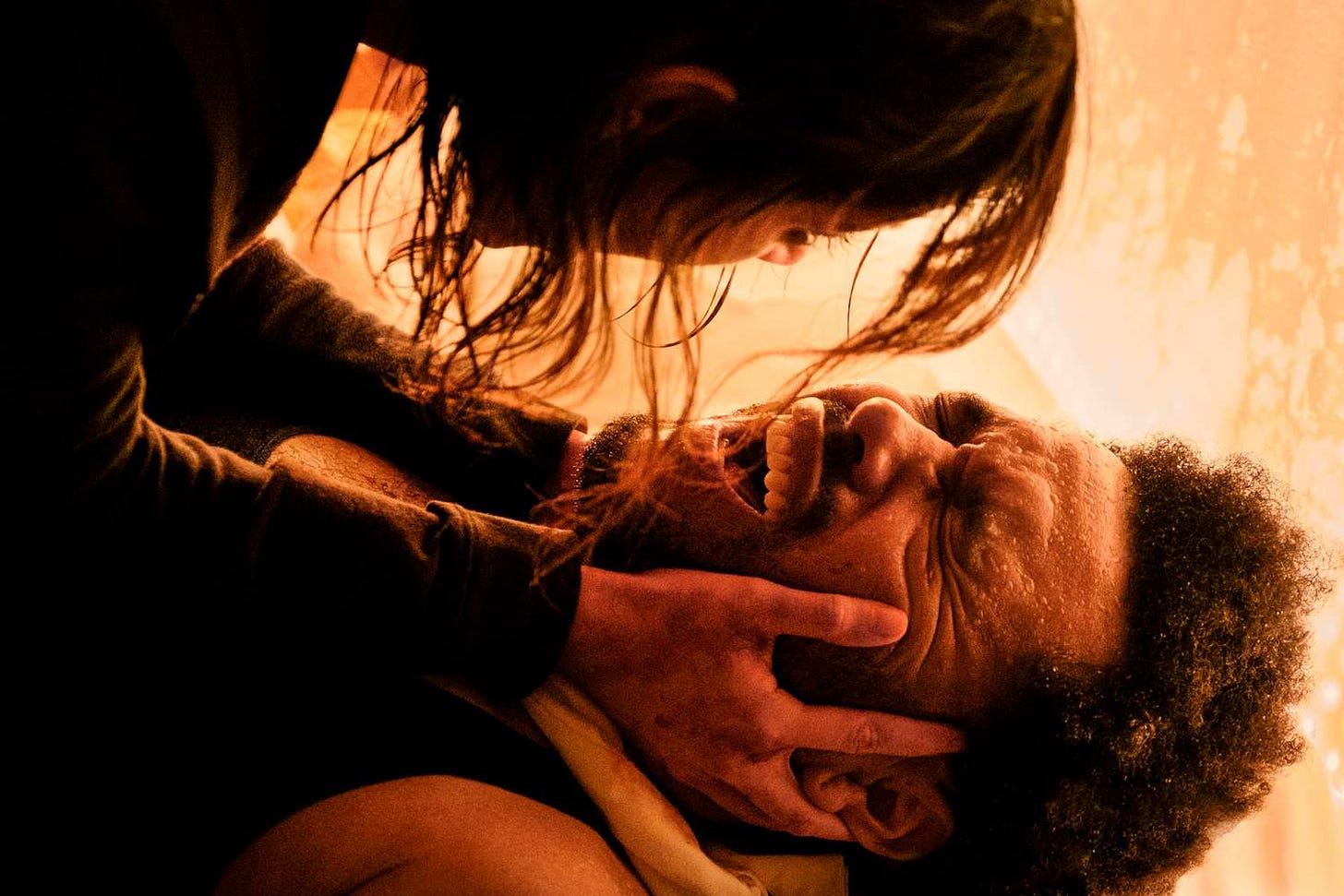Hurry Up Tomorrow
Sort of a modern-day version of "The Wall" featuring the music of The Weeknd, portraying a version of himself in a surreal, fictional misadventure with a scary fan played by Jenna Ortega.
At the conclusion of my review of Trey Edward Shults’ audacious debut movie, “Krisha” — still one of the best first feature films I’ve seen — I implored the young filmmaker, “More, please.”
By the time credits rolled on his fourth, “Hurry Up Tomorrow,” my desires ran in the exact opposite direction: less, please.
“Tomorrow” is sort of a modern-day version of “Pink Floyd — The Wall,” mixing up the music of famous pop artists with a weird, dysfunctional fictional version of themselves. In this case, it takes the songs and themes of Abel Tesfaye aka The Weeknd and churns them into a surrealist misadventure in which he plays a version of himself who succumbs to the charms of a scary fan played by Jenna Ortega, who puts him through an emotional ringer.
The movie, written by Shults, Tesfaye and Reza Fahim, is dizzying and occasionally dazzling. It’s also over-directed like hell, with overlong shots of stylized images and indistinct shapes that are stubborn about coalescing into any kind of meaningful form.
It’s a classic example of a director, who in this case also edited the movie, falling in love with his own shots. The result is a film that often seems so ensorceled with itself, it forgets to invite the audience in.
The version of The Weeknd Tesfaye plays in the movie is an incredibly needy, sensitive and callous young man. You can only hope he’s just exaggerating his own negative traits in pursuit of self-examination. He’s shy and passive, preferring to stay in the bathroom tinkering on a keyboard while everyone else carries on the usual rock star drugged-out craziness outside in his hotel suite. But he also has a massive ego, seeing himself as a living legend and muse to millions.
He’s encouraged in this delusion by his manager/best/only friend Lee, played by Barry Keoghan. He sees himself as Abel’s protector and pal, but really his job is to ply the artist with encouragement and various substances so he keeps performing to sold-out stadiums night after night. Abel has been experiencing some issues with his vocal chords lately that threaten the whole enterprise, which the doctors say is psychosomatic.
Abel has also apparently been dumped by his girlfriend, making frequent pleading calls and texts begging — demanding, in fact — that she come back or at least acknowledge his pain. It seems he’s a guy with serious abandonment issues from the childhood desertion of his father, and as a result he tends to project his pain on others.
Anima (Ortega) — never actually named in the movie as far as I can tell — is a fan in the audience Abel locks eyes with as he’s experiencing a combination of mental breakdown and vocal spasm. This is based on a real event the singer experienced during a live concert.
He flees the stage, they bump into each other after she evades the security guys, and they wind up spending a magical night together, having carefree fun at an amusement park and bonding over their shared sense of inescapable loneliness. (Shults appears briefly as a roller coaster passenger.)
Things take another turn the next morning, which I’ll leave to you to discover, other than to say the fangirl turns out to be quite scary and deranged. This hardly comes as a surprise, as we watched her story parallel to Abel’s prior to their meeting, and it’s clear she’s a few eggs short of a dozen.
Oddly, during this last act, which wanders into more traditional psychological thriller territory, the director’s photographic jitteriness calms down and the movie seems to settle out a bit. Ortega is quite compelling as the fan, who truly seems to think she understands The Weeknd’s music better than he does himself.
Tesfaye proves himself a decent enough actor, with big, soulful eyes and a perpetually pained expression. I’d be curious what he could do playing something other than an ersatz version of himself.
The movie is being released in conjunction with The Weeknd’s sixth album bearing the same name, and they’re essentially companion pieces to each other. He’s a truly gifted singer, with one of those angelic voices that seems not to have been touched by puberty. It’s not my kind of thing, synth-heavy beats and soaring falsetto crescendos, though at times it favorably recalls ‘80s Michael Jackson.
“Hurry Up Tomorrow” is much too much. There’s a strong enough vision there that it didn’t need all the crazy lighting and camera-tricks obfuscation. This sort of thing might work for a four-minute video but not a 105-minute movie. It felt much longer, and not in a good way.





